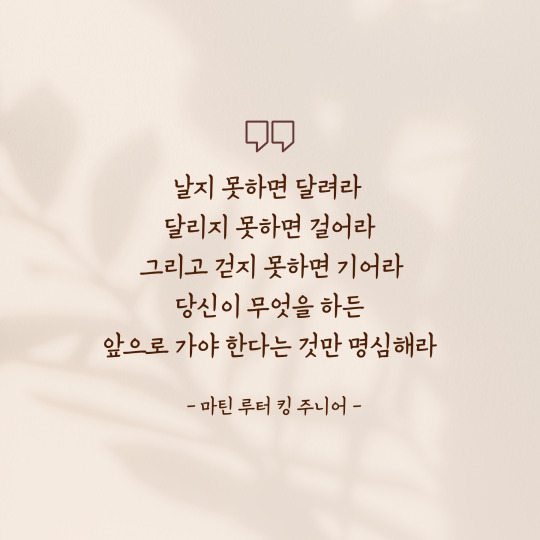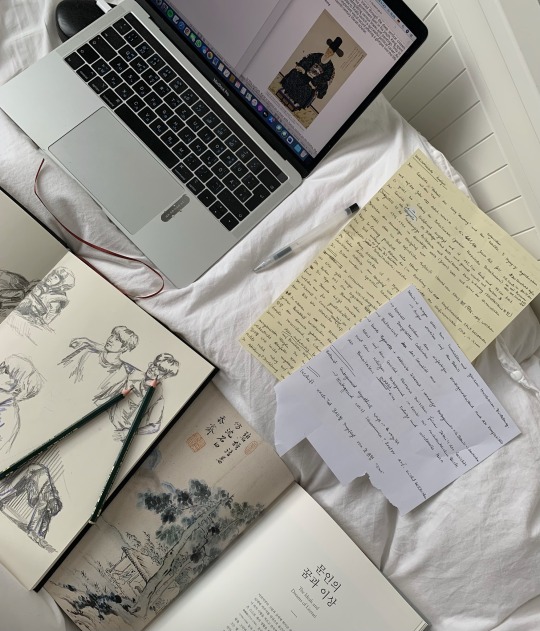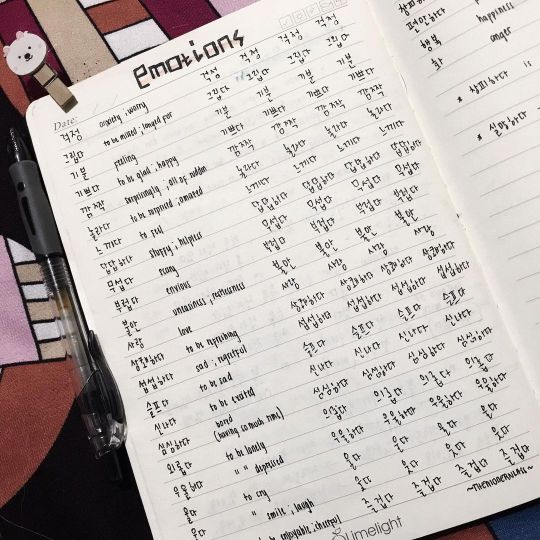#한국어배우기
Explore tagged Tumblr posts
Text
할아버지의 인터넷 정복기 - Grandfather's Internet Conquest Chronicles

"내 손녀가 '시대에 맞춰가야 한다'고 했어. 3주가 지난 지금, 200만 명의 십대들이 나를 '홀섬 킹'이라고 부르는데, 둘 중 뭐가 더 모욕적인지 모르겠다."
[My granddaughter said I needed to 'get with the times.' Three weeks later, I'm being called a 'wholesome king' by two million teenagers, and I don't know which part insults me more.]
이 모든 난리는 에밀리가 내 폰에 그 빌어먹을 틱톡이란 걸 깔면서 시작됐다. 그게 "정신을 활발하게 해줄 거"라고 했다. 마치 40년 동안 폭탄 해체하는 일이 내 정신을 충분히 날카롭게 만들어주지 않은 것처럼 말이다. 하지만 그 애가 그런 표정을 지었다 - 할머니가 예전에 짓곤 했던 그 표정 - 그래서 난 고개를 끄덕이고 관심 있는 척했다.
[The whole mess started when Emily installed that damn TikTok thing on my phone. Said it would "keep my mind active." As if forty years of defusing bombs hadn't kept my mind sharp enough. But she had that look—the same one her grandmother used to give me—so I nodded and pretended to care.]
내가 올린 첫 영상은 열리지 않는 피클 병에 욕을 하는 거였다. 녹화되고 있다는 것도 몰랐다. 에밀리가 내가 그 병과 씨름하는 동안 폰을 세워뒀는데, 내 헝클어진 회색 머리는 여느 때처럼 아인슈타인처럼 보였다. "군대에서 30년을 있었는데," 난 그 병을 향해 으르렁거렸다. "네가 날 이길 수 있을 거라 생각해? 난 음식물 분쇄기도 겁먹을 만한 걸 먹어봤다고."
[First video I posted was me cursing at a jar of pickles that wouldn't open. Didn't even know I was being recorded. Emily had propped up my phone while I wrestled with the thing, my wild gray hair doing its usual Einstein impression. "Thirty years in the military," I growled at the jar, "and you think you can outlast me? I've eaten things that would make a garbage disposal nervous."]
결국 그 병이 이겼다. 고무 그립을 써야 했다.
[The jar won. I had to use the rubber grip thing.]
24시간이 지나고 에밀리가 전화해서 내가 바이럴이 됐다고 소리를 질렀다. 난 내가 코로나에 걸린 줄 알았다.
[Twenty-four hours later, Emily called, screaming something about me going viral. I thought I'd caught COVID.]
"아니야, 할아버지! 트렌딩이에요! 조회수가 50만이나 돼요!"
["No, Grandpa! You're trending! Half a million views!"]
알고 보니 사람들은 이 늙은이가 절인 오이와 싸워서 지는 걸 완전 재밌어했다. 댓글엔 "이분 꼭 지켜드려야 해" 랑 "할아버지 에너지 뿜뿜" 같은 말들이 가득했다. 도대체 그게 무슨 뜻인지 알 수가 있나.
[Turns out, people found it hilarious—this angry old coot losing a battle with preserved cucumbers. The comments were full of things like "protect him at all costs" and "grandfather energy intensifies." What in the sam hill does that even mean?]
정신을 차려보니 에밀리는 날 "리액션 비디오"라는 걸 찍게 만들었다. 내가 백플립하는 사람들을 보고 (멍청이들), 요즘 은어를 이해하려 하고 ("노캡"이 거짓말 안 한다는 뜻이라고? "솔직히"라고 하면 될 걸), 에너지 드링크를 리뷰하는 ("배터리를 설탕물에 녹인 맛이군") 영상들이었다.
[Before I knew it, Emily had me doing what she called "reaction videos." Me watching people doing backflips (idiots), trying to understand modern slang ("no cap" means they're not lying? What happened to just saying "honestly"?), and reviewing energy drinks ("Tastes like someone melted a battery in sugar water").]
내 가장 인기 있는 영상? 이 어린 녀석들한테 병원식 모서리로 침대를 제대로 정리하는 법을 가르쳐주는 거였다. "동전을 던졌을 때 튀어 오를 정도가 돼야 해. 그래도 아직 부족해!" 내가 카메라를 향해 고함을 쳤다. "그리고 네 목숨이 걸린 것처럼 그 모서리를 단단히 접어. 언젠가는 진짜 그럴 수도 있으니까!"
[My most popular video? Me teaching these young punks how to properly make a bed with hospital corners. "If you can bounce a quarter off it, it's still not tight enough," I barked at the camera. "And tuck in those corners like your life depends on it, because one day, it might!"]
댓글들이 미쳤다:
[The comments were wild:]
"화가 난 게 아니라 우리 침대 정리 실력이 실망스러우신 거야 😭"
["He's not mad, he's just disappointed in our bed-making skills 😭"]
"2025년에 우리에게 필요했던 에너지다"
["This is the energy we needed in 2025"]
"POV: 너의 할아버지가 몰래 주인공이었음"
["POV: Your grandpa is secretly the main character"]
에밀리가 POV가 무슨 뜻인지 설명하려고 했는데, 난 내 뇌가 귀에서 새어나오기 전에 그만하라고 했다.
[Emily tried explaining what POV means, but I told her to stop before my brain started leaking out my ears.]
지난주엔 마트에서 어떤 애가 내 사인을 해달라고 했다. 난 그 애한테 침대를 제대로 정리하는 걸 보여주면 영수증에 사인해주겠다고 했다. 불쌍한 녀석, 마치 내가 다빈치 코드를 해독하라고 한 것처럼 보였다.
[Last week, some kid at the grocery store asked for my autograph. I told him I'd sign his receipt if he showed me he could make his bed properly. Poor kid looked like I'd asked him to decode the Da Vinci Code.]
이제 에밀리는 "수익 창출"이니 "브랜드 딜"이니 하는 얘기를 하고 있다. 어떤 매트리스 회사가 자기네 제품을 홍보해달라고 한다는군. 나한테 말이다! 평생 반은 돌덩이 위에서 자면서 그걸 호화로운 숙소라고 불렀던 바로 그 사람한테.
[Now Emily's talking about "monetization" and "brand deals." Apparently, some mattress company wants me to promote their products. Me! The same guy who spent half his career sleeping on rocks and calling it luxury accommodation.]
진짜 웃긴 건? 내 옛 부대에서 이 ���식을 들었다는 거다. 존슨 상사한테 문자가 왔다: "상관님, 죄송하지만, 이제 틱톡 스타가 되셨다고요? 세상이 정말 미쳐가나 봅니다."
[The real kicker? My old unit caught wind of it. Got a text from Johnson, my former sergeant major: "Sir, with all due respect, you're a TikTok star now? The world really has gone to hell."]
난 에밀리가 가르쳐준 그 바보같은 춤을 추는 영상을 보내줬다, 그저 그를 고통스럽게 하려고.
[I sent back a video of me doing that stupid dance Emily taught me, just to watch him suffer.]
아마도 이 "시대에 맞춰가는" 것도 그렇게 나쁘진 않은 것 같다. 하지만 누군가 날 한 번만 더 "베스티"라고 부르면, 인터넷을 통째로 지워버릴 거다. 젠장맞을 인터넷 전체를. 방법은 찾아내겠지.
[Maybe this "getting with the times" thing isn't so bad after all. Though if one more person calls me "bestie," I'm deleting the internet. The whole damn thing. I'm sure I can figure out how.]
적어도 그 피클 병은 이제 유명해졌다. 아직도 안 열린 채로 내 선반에 트로피처럼 놓여있다. 어떤 싸움은 품위 있게 지는 거고, 어떤 싸움은 콘텐츠로 만드는 거다. 에밀리 말로는 그렇다나. 난 그냥 복수라고 부르지만.
[At least the pickle jar is now famous. It sits on my shelf like a trophy, still unopened. Some battles you lose with dignity, and some you turn into content. That's what Emily calls it anyway. I just call it revenge.]
요즘 애들이 뭔가를 알고 있는 것 같다, 비록 침대는 제대로 정리할 줄 모르지만. 하지만 에밀리한텐 내가 이런 말 했다고 하지 마라. 내 명성을 지켜야 하니까.
[The kids these days might be onto something, even if they can't make their beds worth a damn. But don't tell Emily I said that. I've got a reputation to maintain.]
이제 실례하지만, 난 "POV: 군대 할아버지가 너의 게이밍 셋업을 평가한다"라는 걸 찍어야 한다고 한다. 그게 뭔진 모르겠지만. 이 녀석들 케이블 정리가 제대로 안 돼있으면 혼쭐을 내줄 거다.
[Now, if you'll excuse me, apparently I need to film something called a "POV: Military grandpa rates your gaming setup." Whatever that means. These kids better have their cables properly managed, or they're in for an earful.]
#tiktok#grandpa#famous#shortstory#fiction#writing#storytelling#creativewriting#flashfiction#literary#reading#amwriting#koreanlanguage#learnkorean#koreanstudy#koreanlearning#koreanculture#koreanvocabulary#koreangrammar#koreanforbeginners#koreanthroughfiction#한국어#한국어공부#한국어배우기#한국어단어#bilingual#koreanenglish#englishkorean#translated#translation
87 notes
·
View notes
Text
The O.G.s of Korea
One recent show I watched was Trauma Code (중증외상센터) - a bit extreme but fun in that typical K-drama kind of way. Throughout the show characters get nicknames, and one of those was 조폭, which was translated as Gangster. Now I’ve heard multiple words that were translated as “gangster”, but this was a new one for me, so I decided to break down the differences.
깡패 - A thug, rough & violent. More of an individual criminal than literal gang member.
양아치 - A bully, punk, generally called this more because of their behavior, not serious crime.
날라리 - A troublemaker, delinquent. Similar to 양아치, but a bit more carefree.
조폭 - An actual violent person with power, generally in organized crime (closest to actual “gangster”).
Example Sentences
"어제 밤에 왠 깡패들이 가게에 와서 없던 자리세를 내라고 하면서 다 때려 부수고 갔지 뭐야?"
"What the hell, last night some gangsters came by the store and demanded protection fees while destroying everything."
“너 중학생 들한테 또 삥 뜯었어? 갑자기 탈색도 하고 이상한 문신도 하고, 진짜 양아치 다 됐네...”
"Did you steal the middle schooler's money again? Suddenly bleaching your hair and getting weird tattoos, you really have become a delinquent."
"학생 때 나는 완전 모범생이었고 그 애는 미래가 없는 날라리 같았는데, 나는 그냥 회사원이 되었고 걔는 유명한 유투버가 된 걸 보니 맥이 빠진다."
"When we were students I was a model student and they seemed like a futureless troublemaker, but now I'm just a office-worker and they are a famous YouTuber... so I feel so defeated."
"이 도시는 조폭들이 조직적으로 많은 사업을 운영하고 있어서, 그들과 엮이지 않고서는 진입하기가 쉽지 않아."
"The gangsters have organized and are running a lot of businesses in this city, not getting intertwined with them and entering is not easy."

Other fun related words
딴따라 - Entertainer
모범생 - Model student (opposite of 날라리)
#korean#한국어#한국어 공부#studyblr#한국어배우기#study korean#studying korean#learning korean#korean language#korean slang#slang#south korea
29 notes
·
View notes
Text
공부 시간!
Hey! It's been... a while, I know. But I am back at studying 한국어 and it's time to study some vocabulary and practice by making sentences, so here we go!
어휘 (vocabulary):
방 (room)
교실 (classroom)
문 (door)
창문 (window)
책상 (desk)
의자 (chair/stool)
칠판 (blackboard)
지도 (map)
달력 (calendar)
시계 (clock)
거울 (mirror)
옷걸이 (clothes hanger/hanger)
컴퓨터 (computer)
텔레비전 (television)
책 (book)
공책 (notebook)
필통 (pencil case)
연필 (pencil)
색연필 (color pencil)
볼펜 (ballpoint pen)
지우개 (eraser)
돈 (money)
지갑 (wallet/purse)
가방 (backpack)
휴지 (toilet paper/waster paper)
신분 (identity)
증 (certificate/card)
신분증 (identity card/ ID card)
학생증 (student card)
휴대 전화 (cellphone)
사전 (dictionary)
잡지 (magazine)
여기 (here)
거기 (there [kinda far away])
저기 (there [far away])
이 (this [close])
그 (that [kinda far away)
저 (that [far away])
Okay! Now, let's make some 문장들 (sentences)!
For these sentences, the settings I have imagined are a 교실(classroom) and a 방 (room). Let's begin :)
1st scenario (방):
이 방은 누구의 방입니까? (whose room is this?)
내 방입니다. (It's my room).
그것이 무엇입니까? (What is that [kinda far away]?)
그것이 거울입니다. (That is a mirror.)
옷걸이도 있습니까? (Is there also a hanger?)
네, 옷걸이도 있습니다. (Yes, there is also a hanger.)
2nd scenario (교실):
여기는 우리 교실입니다. 이것이 문입니다. 저것이 창문입니다. 책상들이 있습니다. 의자들도 있습니다. (Here is our classroom. This is a door. That [far away] is a window. There are desks. There are also chairs.)
지도가 있습니까? (Is there a map?)
아니요, 지도가 없습니다. 하지만, 칠판이 있습니다 (No, there is no map. But there is a blackboard.)
시계도 없습니다? (There's no clock either?)
아니요, 시계이 있습니다. 칠판하고 책도 있습니다. (No, there is a clock. There is also a blackboard and a book).
3rd scenario (교실):
필통에 무엇 있습니까? (What's in the pencil case?)
필통에 연필이 있습니다. 볼펜도 있습니다. (There is a pencil in the pencil case. There is also a ballpoint pen.)
지우개도 있습니까? (Is there also an eraser?)
네, 지우개도 있습니다. (Yes, there is also an eraser.)
색연필도 있습니까? (Is there also a color pencil?)
아니요, 색연필 없습니다. (No, there is no color pencil.)
4th scenario (방):
가방에 무엇이 있습니까? (What's in the bag?)
가방에 내 지갑하고 필통이 있습니다. (In the bag are my wallet and my pencil case).
지갑에 무엇이 있습니까? (What's in the wallet?)
지갑에 돈이 있습니다. (There is money in the wallet.)
신분증도 있습니까? (Is there also an ID card?)
네, 신분증하고 학생증도 있습니다. (Yes, there's also an ID card and a student card.)
가방에 휴대 전화도 있습니까? (Is there a cellphone in the bag?)
아니요, 휴대 전화 없습니다. (No, there is no cellphone).
And that's it for today! It's fun to study Korean again :). If you see any mistakes please feel free to point them out, thank you!
Happy studying everyone, I wish you all a nice day! <3
110 notes
·
View notes
Photo

날지 못하면 달려라. 달리지 못하면 걸어라. 그리고 걷지 못하면 기어라, 당신이 무엇을 하든 앞으로 가야 한다는 것만 명심해라. – 마틴 루터 킹 주니어 If you cannot fly then run. If you cannot run, then walk. And, if you cannot walk, then crawl, but whatever you do, you have to keep moving forward. – Martin Luther King Jr. ✏️ 𝐕𝐨𝐜𝐚𝐛𝐮𝐥𝐚𝐫𝐲: 날다: fly 달리다: run, dash 걷다: walk 기다: crawl 그리고: and 무엇: anything, something 앞: front 가다: go 명심하다: keep (sth) in mind, bear (sth) in mind, be sure to remember ✏️ 𝐆𝐫𝐚𝐦𝐦𝐚𝐫: 1. V~지 못하다 = cannot V E.g. 날지 못하다 = cannot fly/ be unable to fly 2. V~아/어 라 = used when the speaker demands or directs the listener for doing some work. E.g. 날지 못하면 달려라 = If you can't fly, run #KoreanVocabulary #KoreanLanguage #quotesdaily
🌸 🌼 🌻
Support me at: https://koreanlanguageloving.my.canva.site/
#Korean Language#korean langblr#Learn Korean#Study Korean#Hangul#Korean Quotes#positive quotes#한국어 배우기#한국어 단어#한국어 공부하기#한국어배우기#한국어 연습#한국어공부중#한국어#한국어공부해요#한국어공부#한국어공부하기
98 notes
·
View notes
Text
2025년 29일 4월 (화)
오늘은 우리 새로운 사무실 건물에 처음 가는 날이야~ 짱이야 :)
2 notes
·
View notes
Text
호랑이와 신발
옛날에 큰 호랑이 한 마리가 숲 속에 살았어요. 어느 날, 호랑이는 배가 고파서 마을로 갔어요. 마을 옆 밭에 소 한 마리가 서 있었어요. 호랑이는 소를 잡아먹고 싶었는데, 갑자기 시끄러운 아기 울음소리를 들었어요. 밭 옆에 있는 집에서 아기가 울고 있었어요. 호랑이는 집으로 다가갔어요.
‘아기가 맛있을 것 같아...’ 호랑이는 생각했어요.
엄마가 아기에게 말했어요. “아기야, 울음을 그치거라. 계속 울면 호랑이가 와서 너를 잡아먹을 거야.”
하지만 아기는 시끄럽게 계속 울었어요.
‘이 아기가 울음을 그치지 않는 걸 보니 나를 무서워하지 않는구나.’ 호랑이는 생각했어요.
엄마가 아기에게 다시 말했어요. “아기야, 울음을 그치지 않으면 신발을 줄게.”
그때 아기는 울음을 그쳤어요. 호랑이는 깜짝 놀랐어요!
‘신발이 뭐지? 크고 무서운 게 분명해...’ 호랑이는 생각했어요.
‘신발을 피해야 해. 그렇지 않으면 나는 죽을지도 몰라!’
그때 호랑이는 벽에 비친 어두운 그림자를 봤어요.
“신발!”
호랑이는 으르렁거렸어요. 너무 무서워서 숲 속으로 뛰어 도망갔어요. 하지만 그 그림자는 신발의 그림자가 아니었어요. 그것은 도둑의 그림자였어요. 도둑은 호랑이가 으르렁거리는 소리를 듣고 깜짝 놀라 무서워서 자기 집으로 도망갔어요.

2 notes
·
View notes
Text
vocab list: 미술
그림: painting, picture, drawing, sketch, illustration
페인팅: painting (영어)
페인트칠: painting (한국어)
그리다: to paint, draw, sketch a picture
끌다: to pull, draw/attract (someone's attention)
긋다: draw a line
만들다: to make (a movie, book, song), produce, direct (a movie), compose (a song)
사진: picture, photo
영화: picture, video, movie, film
영상: picture, video, image (shown on a screen)
화면: picture, image (space filled by a photo)
그림자: shadow, silhouette, reflection (on a mirror/water)
그늘: shade, dark part
미행: shadowing (secretly following someone to keep an eye on them or get evidence)
느끼다: to feel (experience an emotion in one's mind), realize, being aware of
기분: mood, feeling, atmosphere (the situation surrounding)
감정: emotion, feeling (towards a certain incident or person)
도자기: pottery, ceramics, chinaware (도기 is a bowl made of clay, and 자기 is baked at a higher temperature-1200°C-)
도예: abbreviation of '도자기 공예' -ceramic arts-
도기: pottery, earthenware
회: raw fish, round (ONLY when it's added to a number, aka a counter)
둥근: round, spheroid
차례: order, turn
계속: continuosly, consecutively
형태: shape, form, figure, appearance (of an object)
모양: shape (outer appearance/aspect) -mostly used-
형성하다: to form, build, develop a certain character or form
생기다: to be formed, come into being (something that didn't exist to come into existence)
예술: art (very broad sense, including music, painting, sculpture, architecture)
미술품: art work, fine art, work of art
미술: art (painting and sculpture)
기술: technology, skill, technique
닦다: to clean, scrub, wipe
양치: brushing teeth
붓: writing/painting brush
빗다: to brush/comb one's hair
비디오: video
텔레비전: TV
녹화: video, record, tape, videotape
무비: movie
원: circle; ₩
돌다: to turn, rotate, spin; to go around, circle
그룹: group, a circle (of people)
사회: society, circle
잉크: ink
서명하다: to sign
서명: signature, autograph
먹물: black ink (ink + water), squid ink
광장: square, plaza
사각형: square, quadrangle, tetragon, quadrilateral
평방: square (ej metros cuadrados)
제곱: square (of -maths-)
네모: square
조각: piece (of), slice; sculpture, statue
작품: piece (of music), work (of art); product, production
부분: piece, part, section, portion
하나: one, piece
하나씩: one by one, one at a time, piece by piece
일부: some/any part, portion, section, partially, partly
즐기다: to enjoy (oneself), have fun
하세요: do it, allowing someone to do something
누리다: authority to enjoy what you have in life; to enjoy someone's rights or benefits
즐겁게: delightfully
재미있다: funny, interesting, amusing, entertaining
점토: clay
진흙: mud
춤: dance (dynamic, b-boing, -방탄소년단-)
무용: dance (soft movement -ballet-)
추다: to dance
페인트: paint (pintura)
칠하다: to paint, coat, varnish
물감: paint, dye (to draw a picture or dye cloth)
색칠하다: to paint, color (something)
크레용: crayon
~을 크레용으로 그리다: to draw with crayons
~을 사생하다: to draw exactly as it is (not used in conversational korean)
주변 경치를 사생하다: draw exactly how it is viewed
사생대회: drawing/painting contest
납작한: flat (to be)
평면: plane/flat surface
아파트: flat, apartment
시시한: flat, petty, small minded; insignificant, trivial
한 푼 없는: have no money
포스터: poster
영화계: the film world (-hollywood-)
박막: a thin film (anatomical jargon)
촬영: shooting, filiming
필름: film (영화 필름, 카메라 필름, 휴대폰 액정보호 필름, etc)
행동하다: to act, behave
법률: law, act, legislation
연기하다: to act, perform (personality, behavior, etc of a role); to delay, postpone
행위: act, action (with intention, will)
대행하다: to do something for someone
source: 영단어는 관리다 app

#study#korean#koreanlanguage#koreanstudy#koreanstudying#한국어#한국어연습#한국어공부#한국어공부중#한국어배우기#korean language#한국어 배우기#한국어 공부하기#korean learning#korean langblr#learn korean#korean lesson#korean words#korean voca#korean vocabulary list#korean vocab#korean vocab list#korean vocabulary#한국어 단어#한국어 배우다#한국어 공부#한국어 어휘
346 notes
·
View notes
Text


02/2021 -> 11/2022
My korean handwriting has sure changed quite significantly 👀
#personal#studyblr#langblr#korean#study#korean studying#self study#study motivation#study notes#한국어배우기#한국어공부#한국어 연습
141 notes
·
View notes
Text

8 hours till submission deadline
check my insta you want 🐰
#studyblr#korean#langblr#hangul#한국어배우기#studyaccount#studyinspiration#studying korean#한국어#art aesthetic#art history#east asian art#asian art#light acadamia aesthetic#light academia#book blog#中文学习#中条あやみ#studying chinese#language study#gold aesthetic#cozy aesthetic#aetshetic#sketchbook#bts fanart#bts drawing#sope fanart
1K notes
·
View notes
Photo

오늘의 어휘학습 (Today’s Vocabulary) : Emotions — tags: #korean #koreanstudy #koreanlanguagelearning #studykorean #studykoreanwithme #languagelearning #languagestudy #vocabulary #reviewingvocabulary #koreanvocabulary #vocabstudy #vocabularystudy #studyreview #notes #koreannotes #studywithme #koreanstudytime #한국어배우기 #한국어공부 #한국어 #어휘공부 #어휘학습 #studygram https://www.instagram.com/p/CqWz3rFhDZ_/?igshid=NGJjMDIxMWI=
#korean#koreanstudy#koreanlanguagelearning#studykorean#studykoreanwithme#languagelearning#languagestudy#vocabulary#reviewingvocabulary#koreanvocabulary#vocabstudy#vocabularystudy#studyreview#notes#koreannotes#studywithme#koreanstudytime#한국어배우기#한국어공부#한국어#어휘공부#어휘학습#studygram
8 notes
·
View notes
Text
무일푼 예언자 - Prophet Penniless

에즈라는 덥수룩한 수염을 긁었다. 벙커 생활 5년 차에 생긴 특유의 가려움이 문명이 완강하게 붕괴를 거부함에도 불구하고 여전히 지속되고 있었다.
[Ezra scratched at his matted beard, the particular itch that had developed during year five of bunker living still persisting despite civilization's stubborn refusal to collapse.]
24시간 약국의 형광등은 미치도록 끈질기게 윙윙거렸고, 그는 지금쯤 희귀한 보물이 되었어야 할 일상적인 약들로 가득 찬 선반을 눈을 찡그리며 바라보았다. 2020년 4월 25일, 그가 예언했던 원래의 종말 날짜에 의식적인 정확함으로 자신의 이마에 새긴 흉터가 인공 조명 아래에서 욱신거렸다. 이제 그것은 한때 그의 교단이 숭배했던 "선택받은 자의 표식"이 아닌, 망상의 부끄러운 유물에 불과했다.
[The fluorescent lights of the 24-hour pharmacy buzzed with maddening persistence as he squinted at shelves stocked with the same everyday medicines that should have become extinct treasures by now. His forehead scar—self-carved with ritualistic precision on April 25, 2020, the original date of his prophesied apocalypse—throbbed beneath the artificial light, now merely an embarrassing relic of delusion rather than "The Mark of the Chosen" his congregation once revered.]
"선생님, 이걸로는 계산할 수 없어요," 약사가 말했다. 플라스틱 이름표("브렌다")와 완벽한 보라색 ���니큐어를 한 그녀는 에즈라가 쓸려나갈 것이라고 예언했던 모든 것을 대표하고 있었다.
["Sir, you can't pay with these," said the pharmacist, a woman whose plastic name tag ("Brenda") and immaculate purple nail polish represented everything Ezra had prophesied would be swept away.]
그녀는 에즈라가 조심스럽게 모아둔 2020년 이전의 은화 컬렉션을 라미네이트 카운터 위로 다시 밀어냈다. 그녀의 보라색 매니큐어는 이미 몇 년 전에 꺼졌어야 할 조명 아래에서 조롱하듯 반짝였다.
[She slid his carefully hoarded collection of pre-2020 silver dollars back across the laminate counter, her purple nail polish gleaming mockingly under the lights that should have gone dark years ago.]
"그리고 이것들로도… 뭐든 간에 계산할 수 없어요." 그녀는 아직 잉크가 약간 젖어 있는 그의 손으로 그린 "종말 후 화폐"를 손가락으로 찔렀다. 에즈라는 익숙한 존재를 감지하고 돌아보니 두 사람이 줄을 서서 기다리고 있었다. 그들의 얼굴을 보자마자 즉시 알아보았다—헨더슨 부부, 한때 그의 가장 열렬한 추종자로 그들의 퇴직 계좌를 그의 "생존 기금"에 쏟아부었던 사람들이었다.
["And you definitely can't pay with… whatever these are." She poked at his hand-drawn "post-apocalypse currency," the ink still slightly damp. Ezra sensed a familiar presence and turned to find two people waiting in line, their faces triggering an immediate flash of recognition—the Hendersons, once his most fervent followers who'd emptied their retirement accounts into his "Survival Fund."]
"달러의 붕괴는 단지 지연된 것일 뿐, 피할 수 없는 겁니다," 에즈라는 중얼거렸다. 5년 동안 자신과 애완 바퀴벌레에게만 말을 해온 탓에 그의 목소리는 녹슬어 있었다. 약국의 소독약 냄새는 그의 부은 턱에서 여전히 풍겨 나오는 강한 마늘 냄새와 충돌했다. 실패한 치료법들이 후각적 유령처럼 그를 따라다녔다.
["The dollar's collapse is merely delayed, not averted," Ezra muttered, his voice rusty from five years of speaking only to himself and his pet cockroaches. The antiseptic smell of the pharmacy clashed with the pungent garlic odor still emanating from his swollen jaw, his failed remedies following him like an olfactory ghost.]
"저는 디지털 광고판에서 불이 비처럼 내리고 네 명의 기수가 쇼핑몰 주차��을 가로지르는 환상을 봤습니다. 위성들이 떨어지면—"
["I've seen visions of fire raining from digital billboards and the four horsemen riding through strip mall parking lots. When the satellites fall—"]
"이봐요, 무일푼 예언자님," 브렌다가 말을 끊었다. 그녀의 인내심은 에즈라가 비축해 둔 생수처럼 눈에 띄게 증발하고 있었다. 그 별명에 에즈라의 얼굴이 일그러졌다—한때 존경받던 "깨달은 자 예언자 에즈라"라는 칭호가 조롱당하는 것에 상처받으면서도 동시에 그 고통스러운 정확성에 충격을 받았다.
["Look, Prophet Penniless," Brenda interrupted, her patience visibly evaporating like the bottled water Ezra had stockpiled. At the nickname, Ezra's face twisted—both wounded by the mockery of his once-revered title "Prophet Ezra the Enlightened" and struck by its painful accuracy.]
"계절 한정 호박 스파이스 라떼의 종말을 예언했든 말든 상관없어요. 실제 돈으로 계산하거나 아니면 당신의 종말론 일기장을 다른 곳으로 가져가세요." 그녀는 그의 주머니에서 삐져나온 낡은 노트북을 의미심장하게 쳐다보았다. 그 가장자리는 종말론적 계산들로 닳아 있었다. 그녀는 그가 사지 못한 항생제를 — 야생 마늘 찜질로 오히려 더 악화된, 이제는 너무 부어버려서 차라리 세상의 종말이 나아 보일 정도인 그의 감염된 이를 치료하기 위해 필요했던 약을 — 무심하게 서랍에 툭 던져 넣었다.
["I don't care if you've predicted the end of seasonal pumpkin spice lattes. Either pay with actual money or take your doomsday journal somewhere else." She glanced pointedly at the worn notebook protruding from his pocket, its edges frayed with apocalyptic calculations. She tossed his unpurchased antibiotics—needed for the infected tooth that his wild garlic poultices had only made worse, now swollen to the point that even doomsday seemed preferable—back into a drawer with a dismissive thud.]
그는 끈질기게 평범한 4월의 오후로 비틀거리며 나갔다. 그의 전 추종자들은 길에서 그를 지나치며 눈을 마주치지 않았다. 그들이 스마트워치를 부끄럽게 힐끔거리는 모습은 종말이 그들 모두를 홀대했다는 것을 상기시켰다.
[He shuffled outside into the relentlessly ordinary April afternoon. His former followers avoided eye contact as they passed him on the street, their embarrassed glances at their smartwatches a reminder that the apocalypse had ghosted them all.]
에즈라는 이마의 흉터를 손가락으로 만지작거리며, 잠시 동안 아마도 진짜 재앙은 내내 자신의 내면에 있었던 것은 아닐까 하고 생각했다. 그러나 곧 단호하게 하늘을 올려다보며 떨어지는 위성이 있는지 확인했다.
[Ezra fingered the scar on his forehead and, for just a moment, wondered if perhaps the real catastrophe had been inside him all along, before resolutely checking the sky for falling satellites.]
#shortstory#fiction#writing#storytelling#creativewriting#flashfiction#literary#reading#amwriting#koreanlanguage#learnkorean#koreanstudy#koreanlearning#koreanculture#koreanvocabulary#koreangrammar#koreanforbeginners#koreanthroughfiction#한국어#한국어공부#한국어배우기#한국어단어#bilingual#koreanenglish#englishkorean#translated#translation#languageexchange#podcast#koreanpodcast
3 notes
·
View notes
Text
Korean Slang을 좀치네요~
A casual phrase that was been around for a while
뭐뭐.. “좀 하다”
“Done a bit of this / Dabbled in / Done this a bit in my day”
Simply put, it is a playful way of saying someone has done something quite a bit or is pretty good at something. Which is why it’s generally used with the ~네(요) or 거든(요) grammar endings.
For example
“야 너 롤 해??”
“Do you play LoL (League of Legends)?”
“응, 나 좀 하지”
“Yeah, I play a bit”
But this has changed from 하다 (To do) to 치다 (To play a sport or instrument) but still can be used in everyday context.
So instead of saying “너 베이킹 잘 하네!”
“You’re pretty good at baking!”
You can say
“와아, 이 빵 잘 구웠네. 너 좀 치네”
“Woah, you baked this bread so well. Guess you’re pretty good at baking”
As always, it’s not a direct translation, but you get the gist of it.
이제 구독자분들도 한국어를 좀 치시네요~
(Now you (the readers) know a bit of Korean too)
#korean#한국어#한국어 공부#studyblr#한국어배우기#learning korean#learn korean#slang#korean language#korean slang#language#kpop#korean vocabulary#south korea#seoul
346 notes
·
View notes
Text
😊💜
instagram
#korean language#한국어#learning korean#beginner in korean#learn korean#korean study#korean phrase#한국어 공부#한국어 공부하기#한글#Instagram#korean studyblr#한국어배우기
24 notes
·
View notes
Note
천이백구십팔만 구천구십이
Hi and thank you so much for your ask <3
I think here there's also two different numbers, the first one being 천이백구십팔만, and the second one being 구천구십이.
시작 하자 〰️
천이백구십팔만: 12,980,000
구천구십이: 9,092
That first one was a challenge ngl! But it's definitely fun to practice sino-korean numbers again.
Please do correct any mistakes if you spot any, thank you <3
Let's keep going! Happy studying ~
REFERENCE:
백: 100
천: 1,000
만: 10,000
십만: 100,000
백만: 1,000,000 (7 numbers)
천만: 10,000,000 (8 numbers)
억: 100,000,000 (9 numbers)
십억: 1,000,000,000 (10 numbers)
백억: 10,000,000,000 (11 numbers)
천억: 100,000,000,000 (12 numbers)
조: 1,000,000,000,000 (13 numbers)
#ask#sino-korean#korean#한국어#한국어공부#한국#한국어배우기#sino-korean numbers#korean learning#learning korean#learn korean
35 notes
·
View notes
Photo

아무리 바람이 세차게 불어도 산은 바람에 고개를 숙일 수 없다 No matter how the wind howls, the mountain cannot bow to it - from Disney Movie: Mulan ✏️ 𝐕𝐨𝐜𝐚𝐛𝐮𝐥𝐚𝐫𝐲: 아무리 (adv): no matter how, however, whatever 바람 (n): wind 세차다 (adj): strong, rough 불다 (v): blow 산 (n): mountain 고개 (n): head 숙이다 (v): bow, bend ✏️ 𝐆𝐫𝐚𝐦𝐦𝐚𝐫: 1. (아무리) A/V-아/어도 grammar = even if, no matter how ~a situation occurs regardless of the previous action E.g. 아무리 바람이 세차게 불어도 = No matter how strong the wind blows 2. V-(으)ㄹ 수 없다 grammar = can't (do V) E.g. 고개를 숙일 수 없다 = can't bow down
🌸 🌼 🌻
Support me at: https://koreanlanguageloving.my.canva.site/
#Korean Quotes#Korean Phrases#Learn Korean#Study Korean#Hangul#Motivational Quotes#Disney Quotes#Korean Language#korean langblr#인생명언#한국어공부중#한국어 공부하기#한국어공부#한국어 문법#한국어#한국어능력시험#한국어배우기#한국어배우#한국어 배우
128 notes
·
View notes
Text

Korean Fairytale: 개와 돼지
underneath the story is the english translation and a vocabulary list of words used in the story
STORY in Korean:
옛날 옛적에, 한 할머니가 개와 돼지를 기르셨습니다. 할머니는 개와 돼지를 무척 귀여워하셨습니다. 할머니가 개의 머리를 쓰다듬으며 말씀하셨습니다. “참 착하구나. 집도 잘 지키고….” 할머니는 낮잠만 자는 돼지도 좋아하셨습니다.
“돼지야, 아프지 말고 무럭무럭 자라라.” 그러나 낮잠을 자고 있던 돼지는 할머니의 말씀을 듣지 못하였습니다. 돼지는 할머니가 개만 귀여워한다고 생각하였습니다. 어느 날 돼지는 개에게 물었습니다. “할머니께서는 왜 너만 귀여워하시니?”
“그것도 몰라?나는 매일 밤 집을 지키는데, 너는 밥만 먹고 잠만 자니까 싫어하시는 거야.” 돼지는 씩 웃으며 생각하였습니다. ‘오늘 밤부터 나도 잠을 자지 않고 집을 지켜야지. 그러면 할머니께서 나를 더 좋아하실 거야. 밤이 되었습니다.
“꿀꿀, 꿀꿀, 꿀꿀!” 돼지는 목청껏 소리를 질렀습니다. 돼지의 꿀꿀거리는 소리에 할머니는 잠을 이룰 수 없었습니다. ‘밤새도록 잠을 못 자고 울어 대는 것을 보니, 돼지가 병이 났나 보다.
내일 아침에 의사를 불러야겠다. 날이 밝자, 할머니가 의사를 불러 오셨습니다. 의사는 돼지의 엉덩이에 침을 놓았습니다. 돼지는 아파서 꿀꿀거리며 엉뚱한 생각을 하였습니다.
‘할머니께서 집을 더 잘 지키라고 침을 놓아 주시나보다. 그 날 밤에도, 또 다음 날 밤에도, 돼지는 큰 소리로 꿀꿀거렸습니다. “꿀꿀, 꿀꿀, 꿀꿀!” “꿀꿀꿀, 꿀꿀꿀!” 할머니는 돼지 울음소리 때문에 잠을 잘 수 없었습니다.
할머니는 몹시 화가 나셨습니다. ‘밤이면 밤마다 울어 대니 잠을 잘 수가 없구나. 내일 아침 날이 밝으면 장에 내다 팔아야겠다.' 이튿날, 할머니가 돼지를 장에 내다 파셨습니다. 돼지는 할머니의 사랑을 더 받으려다 그만 팔려가고 말았습니다.
ENGLISH TRANSLATION:
Once upon a time, an old lady raised a dog and a pig. The grandmother the loved dog and pig. She patted them on the head and said, "That's nice of you. Keep your house safe...." The grandmother also liked the pig who only took naps.
“Don't get sick, pig. Grow well." But the pig who was taking a nap didn't hear the grandmother. The pig thought that grandmother only loved the dog. One day, the pig asked the dog. "Why does grandmother think you're the cute one?”
“Don't you know that? I protect our house every night, and she doesn’t like you because you only eat and sleep." The pig thought with a grin. "I'm not going to sleep and I'm going to protect the house starting tonight." Then grandmother will like me more. Night came.
“Oink, oink, oink!" The pig screamed at the top of his voice. The old lady couldn't sleep because of the pig's gurgling. "The pig must be sick, seeing that he's been crying all night without sleeping. I'll call a doctor tomorrow morning.”
At dawn, the grandmother called for a doctor. The doctor put a needle on the pig's butt (acupuncture). The pig was sick and giggled and thought of the wrong thing.
"Grandma must be giving me acupuncture to protect the house better." That night, and the next night, the pig giggled loudly. "Oink, oink, oink!" "Oink, oink!" Grandma couldn't sleep because of the pig's crying.
She was very angry. ”I can't sleep because of the crying every night. Tomorrow morning when it’s day, I’ll sell the pig at the market.' The next day, she sold the pig at the market. Pigs aren’t sold to stop trying to get more love of grandmother.
🐷🐶Vocabulary List:
옛날 옛적에 - once upon a time
한 할머니 - a grandmother
개와 돼지 - dog and pig
기르다 - raise, bring up
무척 - very, extremely
귀여워하다 - love, make a pet of
쓰다듬다 - to pet, stroke
말씀하다 - to say (honorific)
참 - truly
착하다 - kind
지키다 - to protect
낮잠을 자다 - to nap
만 - only, just
아프지 말고 - don’t be hurt/sick
무럭무럭 - persistently
자라다 - to grow
그러나 - but, however
어느 날 - one day
물다 - to ask
께서 - to, from (honorific)
매일 밤 - every night
씩 웃다 - smile mischievously
그러면 - if so, then
꿀꿀 - oink
목청껏 - at the top of one's lungs
소리를 지르다 - shout, cry
꿀꿀거리는 소리 - grunt
잠을 이룰 수 없다 - fail to get sleep
병이 나다 - to be sick
았/었나 보다 - guess, It seems like
불러오다 - call in
날이 밝다 - day break
자(마자) - as soon as
엉덩이 - butt
침을 놓다 - apply acupuncture
엉뚱하다 - bizarre, strange
그 날 밤에도 - that night also
또 - also
다음 날 밤에도 - the next night too
큰 소리로 - loudly, in a loud voice
울음소리 - crying sound
몹시 - very, seriously
화가 나다 - to get angry
밤마다 - every night
울어 대다 - cry a lot, bawl
장에 내다 - put
팔다 - to sell
이튿날 - next day
파다 - dig
그만 - stop
팔리다 - be sold
📚FIND MORE STORIES HERE!
#한국어#korean langblr#korean fairytale#korean folktale#korean story#korean stories#improve korean reading#korean reading practice#korean language#한국어배우기#한국말
27 notes
·
View notes